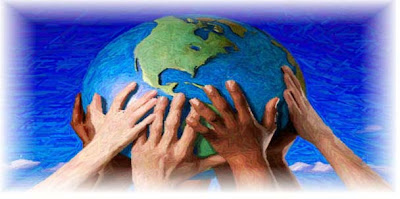
Globalization has a very extensive effect on roughly every globe of life. In the query of financial progress and enlargement it is even more being in this era of globalization. country takes the gains of globalization and tries to get better her economy. Friedman’s idea of golden straitjacket can work as a good start top in this shrewd try with special stress on the pertinent four issues discussed in this document. As I find thru my study, Bangladesh’s potentials to financial globalization is highly talented. I consider that the
 advice made in this paper if implemented well will take Bangladesh to a tip of continued economic enlargement and growth Globalization in the broadest intelligence implies addition of economies and societies crossways the globe through the flow of technology, trade and assets. It essentially refers to a procedure that enables people, goods, in order, norms, practices and institutions to exceed national jurisdictions during markets, technologies, well being and information flows. Four types of changes typify globalization. First, it involves a stretching of social, following and economic performance across frontiers, regions and continents. Second, it is marked by the growing size of interconnectedness and flows of deal, asset, money, relocation, society, etc. Third, it can be connected to a speeding up of global connections and processes. And fourth, the property of remote proceedings can be very major away and exact local progress can have substantial global penalty. Thus the limits flanked by home stuffs and global matters become ever more fluid. Globalization, in short, can be consideration of as the widening, intensifying and growing crash of worldwide interconnectedness. It causes a growth in the volume and diversity of cross border dealings in goods and military.
advice made in this paper if implemented well will take Bangladesh to a tip of continued economic enlargement and growth Globalization in the broadest intelligence implies addition of economies and societies crossways the globe through the flow of technology, trade and assets. It essentially refers to a procedure that enables people, goods, in order, norms, practices and institutions to exceed national jurisdictions during markets, technologies, well being and information flows. Four types of changes typify globalization. First, it involves a stretching of social, following and economic performance across frontiers, regions and continents. Second, it is marked by the growing size of interconnectedness and flows of deal, asset, money, relocation, society, etc. Third, it can be connected to a speeding up of global connections and processes. And fourth, the property of remote proceedings can be very major away and exact local progress can have substantial global penalty. Thus the limits flanked by home stuffs and global matters become ever more fluid. Globalization, in short, can be consideration of as the widening, intensifying and growing crash of worldwide interconnectedness. It causes a growth in the volume and diversity of cross border dealings in goods and military.

 Dhaka Time
Dhaka Time






















